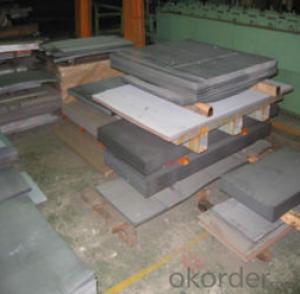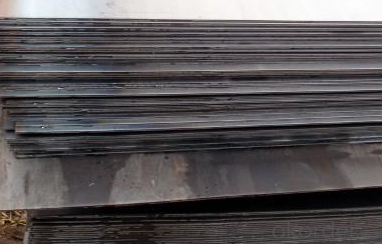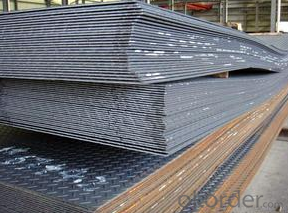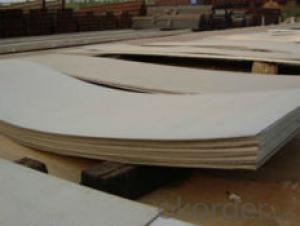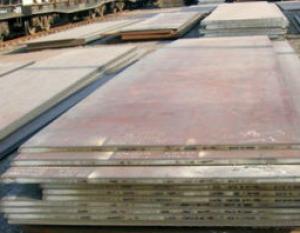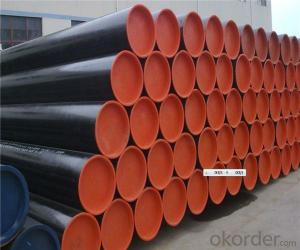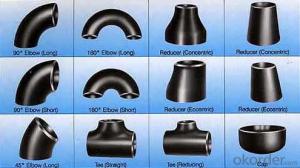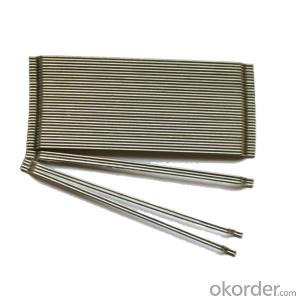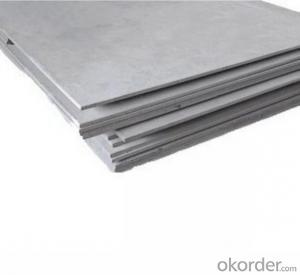Foodstuff Stainless Steel Sheet Price NO. 2 CNBM
- Loading Port:
- Qingdao
- Payment Terms:
- TT OR LC
- Min Order Qty:
- 10 pc
- Supply Capability:
- 30 pc/month
OKorder Service Pledge
OKorder Financial Service
You Might Also Like
Quick Details
| Grade: | 300 Series | Standard: | JIS, AISI, ASTM, GB, Other | Length: | 2000-6000mm |
| Thickness: | 0.3-80mm | Width: | 1000-2000mm | Place of Origin: | Zhejiang, China (Mainland) |
| Brand Name: | huaye | Model Number: | 316 | Type: | Plate |
| Application: | Foodstuff, Gas, metallurgy, biology, electron, chemical, petroleum, | Certification: | SGS |
Packaging & Delivery
| Packaging Details: | Standard export sea-worthy packing in wooden pallet. |
| Delivery Detail: | Normally 15-20 days |
Specifications
1)Surface: NO. 1, 2B, BA, NO. 3, NO. 4, HL, NO. 8 and so on.
2)Tickness: 0.3 to 4.0mm
3)Width: 31 to 1524mm
Specifications
1)Surface: NO. 1, 2B, BA, NO. 3, NO. 4, HL, NO. 8 and so on.
2)Tickness: 0.3 to 4.0mm
3)Width: 31 to 1524mm
4)Use: Decoation, industry etc.
About Products
1. We are a great agents of Chinese famous mills Baosteel, Tisco, Jisco, for S. S. Products, and some international famous mills POSCO, OUTOKUMPU.
2. Special dimension are acceptable.
3. Cutting & Slitting services are available.
4. Swift Lead time (usually about 20 days for ex-stock and processing).
5. Mill Inspection Certificate and Origin can be provided.
6. All material mentioned are in prime grades.
7. Coil weight: 05 to 20 tons(mainly).
8. We can supply materials with various surfaces(NO. 1, 2B, BA, NO. 3, NO. 4, HL, NO. 8)
Service Concept
The first customers become lifelong customers.
Others:
If you want to purchase some products to test the market, we can lower the MOQ
Delivery: Normally 15-20 days
Productivity: 5000-6000 tons/month
Packing: Standard export sea-worthy packing in wooden pallet
- Q: When can I use the PVC pipe and when to use the galvanized pipe?
- PVC pipeline use temperature is -5 to 90 degrees or so, according to the current market price of around 6000 yuan per ton, the price is cheap. Its corrosion resistance is good, can resist most of the acid and alkali, and unlike the steel pipe that is easy to rust, so in the construction of the upper and lower water pipes and other fields have gradually replaced the trend of steel pipe.
- Q: Can steel pipes be used for oil and gas pipelines?
- Yes, steel pipes can be used for oil and gas pipelines. Steel pipes are widely used for their strength, durability, and resistance to corrosion, making them a suitable choice for transporting oil and gas over long distances.
- Q: What is the process of spiral steel tube production?
- Butt welding: the use of advanced double submerged arc welding technology for pre welding, internal welding, external welding. The welded steel tubes are cut into standard lengths using a plasma gage.
- Q: What are the properties of steel that make it suitable for pipe manufacturing?
- Steel is a highly preferred material for pipe manufacturing due to its unique properties. Firstly, steel exhibits exceptional strength and durability, making it capable of withstanding high pressure and extreme temperatures. This strength ensures that steel pipes can safely transport fluids and gases over long distances without the risk of leakage or breakage. Another important property of steel is its resistance to corrosion. Steel pipes are often exposed to various corrosive substances such as water, chemicals, and gases, which can degrade other materials over time. However, steel is highly resistant to corrosion, resulting in long-lasting and reliable pipes. Additionally, steel is a highly versatile material, allowing for various pipe sizes and shapes to be manufactured. Steel pipes can be customized to meet specific project requirements, making them suitable for a wide range of applications such as water supply, oil and gas transmission, sewage systems, and structural support. Moreover, steel is known for its excellent thermal conductivity, which is crucial for applications involving the transportation of hot or cold fluids. Steel pipes efficiently transfer heat, ensuring minimal energy loss during the process. Furthermore, steel is a recyclable material, making it an environmentally friendly option for pipe manufacturing. Steel pipes can be recycled and reused, reducing the need for new raw materials and minimizing waste generation. In conclusion, the properties of strength, durability, corrosion resistance, versatility, thermal conductivity, and recyclability make steel an ideal choice for pipe manufacturing. These properties ensure the reliability, efficiency, and longevity of steel pipes in various industries and applications.
- Q: How to make the magnetic steel, can be like a magnet?
- Magnetization. Winding the insulated wire on the object, passing in the direct current, and taking it down after a period of time.
- Q: What are the different types of coatings used for steel pipes?
- There are several different types of coatings used for steel pipes, including epoxy coatings, polyethylene coatings, coal tar enamel coatings, and zinc coatings.
- Q: What is the role of steel pipes in HVAC systems?
- Steel pipes play a crucial role in HVAC systems as they are used to transport hot or cold water, steam, and refrigerant gases throughout the system. They provide a durable and reliable conduit for the flow of fluids, ensuring efficient heating, cooling, and ventilation in buildings. Additionally, steel pipes are resistant to corrosion and can withstand high pressure, making them ideal for HVAC applications.
- Q: What are the main components of a steel pipe?
- The main components of a steel pipe include the steel material itself, which is typically made from carbon and alloy steel, as well as various coatings or linings that can be applied to enhance its durability and resistance to corrosion. Additionally, a steel pipe may also have fittings such as flanges or couplings, and may be further reinforced with supports or braces depending on its intended use.
- Q: Can steel pipes be used for offshore applications?
- Steel pipes are suitable for offshore applications. They are commonly employed in offshore industries due to their durability, strength, and resistance to corrosion. In offshore settings, such as oil and gas exploration, drilling, production, and fluid and gas transportation, steel pipes are frequently necessary. These pipes are specifically designed to endure harsh and corrosive conditions found offshore, which include exposure to saltwater, extreme temperatures, and high pressure. Moreover, steel pipes can be manufactured to meet specific requirements for offshore projects, guaranteeing safety and dependability in terms of size, thickness, and material grade. In summary, steel pipes are a dependable and extensively utilized option for offshore applications.
- Q: What are the factors affecting the pressure rating of steel pipes?
- The factors affecting the pressure rating of steel pipes include the material of the pipe, its thickness, diameter, and quality, as well as the temperature and type of fluid being transported. Additionally, the operating conditions, such as the level of stress or strain on the pipe, also play a significant role in determining its pressure rating.
Send your message to us
Foodstuff Stainless Steel Sheet Price NO. 2 CNBM
- Loading Port:
- Qingdao
- Payment Terms:
- TT OR LC
- Min Order Qty:
- 10 pc
- Supply Capability:
- 30 pc/month
OKorder Service Pledge
OKorder Financial Service
Similar products
Hot products
Hot Searches
Related keywords
